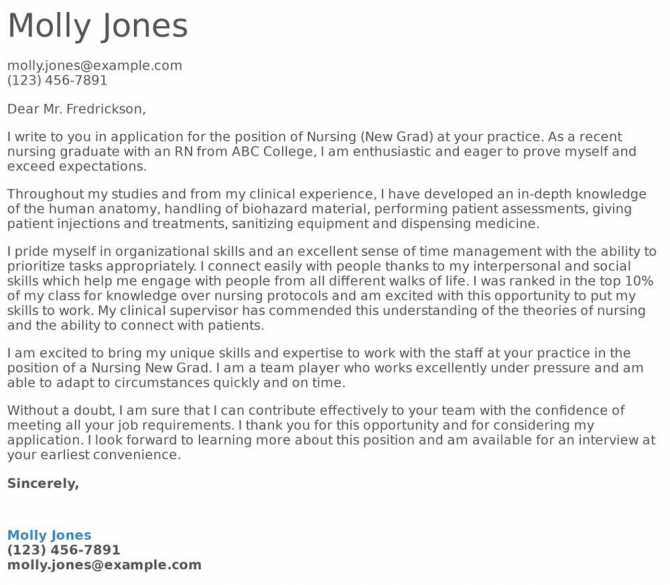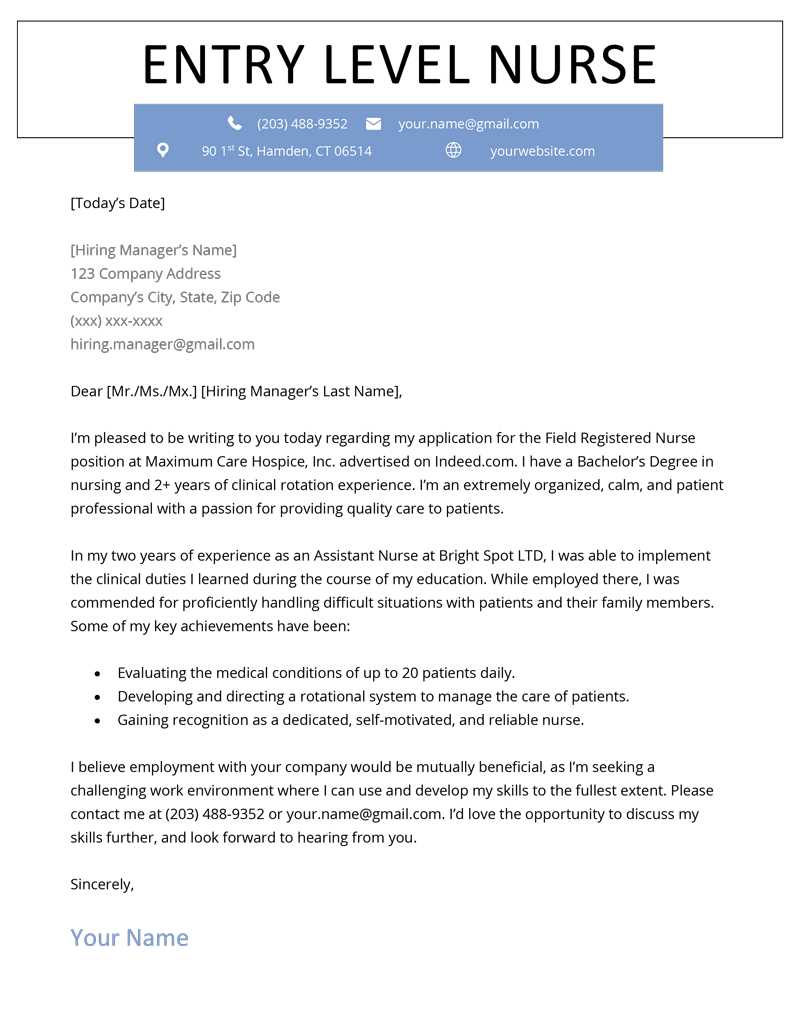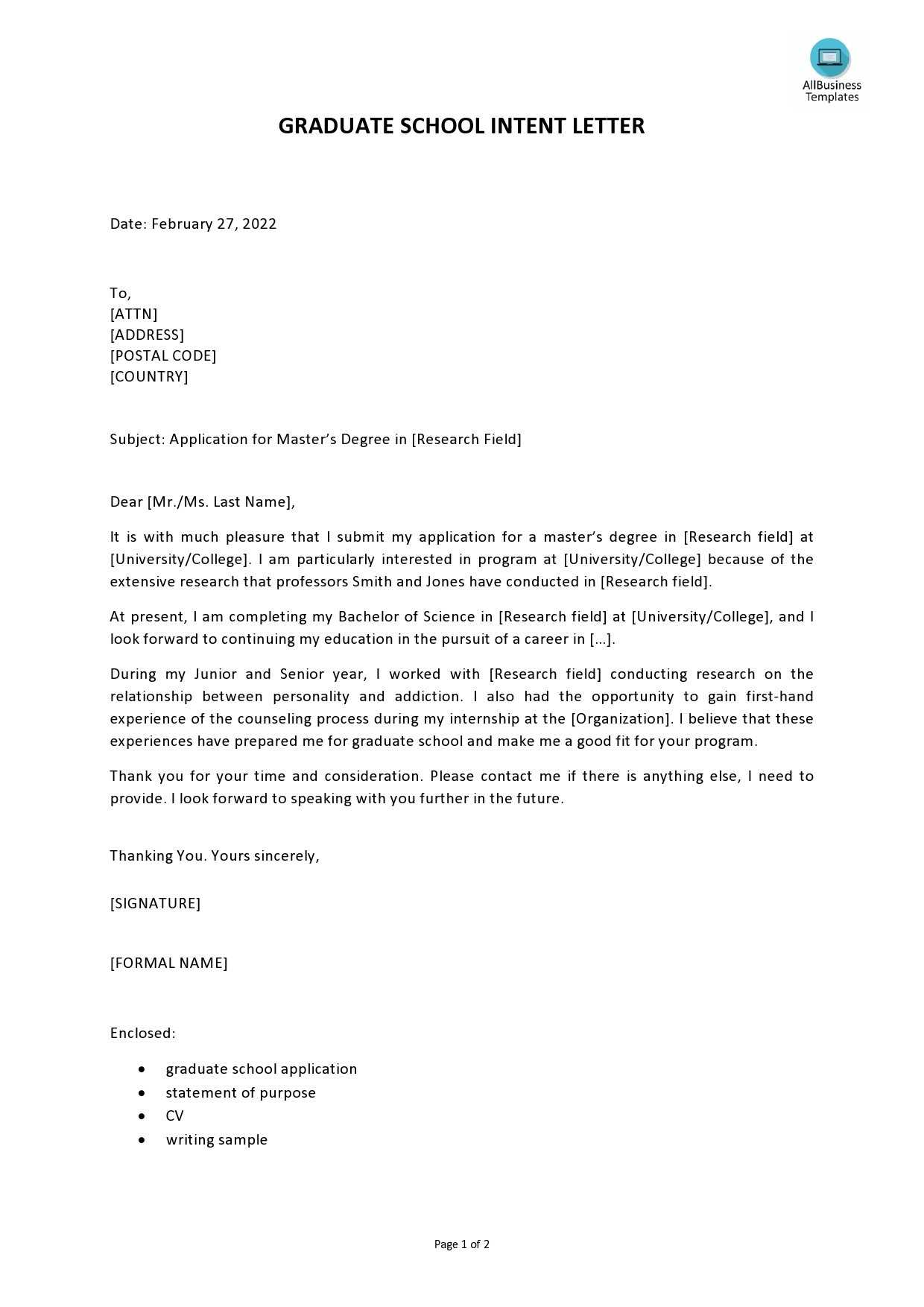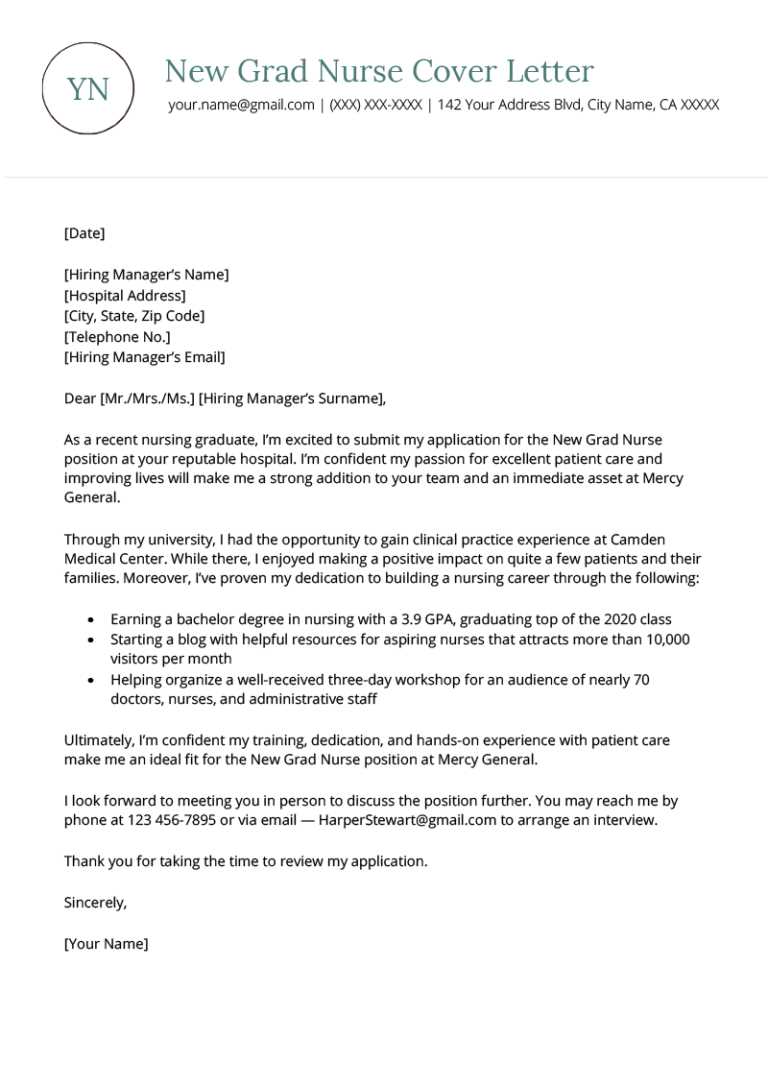New graduate cover letter template

Craft a cover letter that directly addresses the job you are applying for, highlighting your skills and enthusiasm. Avoid general statements; instead, mention specific experiences or projects that demonstrate your abilities. Focus on how your academic achievements and internships have prepared you for this role.
Customize the content to match the company’s needs. Research the organization and show your genuine interest in their mission and values. For example, if the company is known for its innovation, mention how your coursework or a particular project relates to their work and how you can contribute to their growth.
Use a clear and concise tone. Emphasize how you can provide value, not just what you have accomplished. Be specific about the skills you developed during your studies, such as teamwork, problem-solving, or leadership, and explain how they will help you excel in the position you are seeking.
Wrap up by expressing your enthusiasm for the opportunity and your willingness to discuss your qualifications further. Keep the closing professional and confident, but avoid overly formal language that could seem stiff.
New Graduate Cover Letter Template
Begin with a strong opening. Address the hiring manager by name, if possible. Avoid generic phrases like “To whom it may concern.” Mention the role you’re applying for and where you found the job listing.
Introduction
Introduce yourself briefly. Highlight your recent graduation and any relevant academic achievements that make you a suitable candidate for the role. Be specific about the skills and knowledge you gained during your studies that directly apply to the position.
Body
In the next section, focus on what you can bring to the company. Mention any internships, volunteer work, or personal projects that demonstrate your ability to work in the field. Give examples of how you contributed to past projects and what skills you developed, such as teamwork, problem-solving, or leadership. Make sure to link these experiences to the job you want to get.
End by expressing enthusiasm about the opportunity and how you would love to contribute to the company’s success. Be concise but show genuine interest in the role and the company. Close with a statement about your eagerness to discuss your qualifications further in an interview.
Crafting an Attention-Grabbing Opening Statement

Your opening statement should immediately highlight your enthusiasm and demonstrate why you’re a strong candidate. Begin with a direct, clear mention of the position you’re applying for. Tailor it to the company by referencing their values, culture, or specific job requirements. Mention your degree and a key achievement that directly ties to the role.
Keep your tone confident yet approachable, aiming to spark interest from the first line. Avoid generic phrases that don’t add new information to the reader. Highlight what excites you about the opportunity and how your skills align with the company’s goals.
Consider structuring your opening statement like this:
| Example |
|---|
| As a recent graduate with a degree in marketing, I am eager to apply my experience in digital campaigns and my passion for creative content to the Marketing Assistant position at XYZ Company. Your commitment to innovative advertising aligns perfectly with my skills and aspirations. |
By focusing on your relevant strengths and specific interest in the company, your opening will make a lasting first impression. Keep it concise but impactful, setting the tone for the rest of your letter.
Highlighting Your Relevant Academic Achievements
Focus on specific academic projects, research, or coursework directly tied to the job you’re applying for. Mention any relevant classes where you excelled or contributed to group work that shows your skills. For example, if you worked on a data analysis project in a statistics class, highlight your ability to work with data, interpret results, and communicate findings clearly.
Include academic honors or awards that reflect your dedication and performance. If you graduated with honors or were recognized for a particular achievement, make sure it stands out. This helps potential employers see your commitment to excellence.
If you’ve completed internships or research assistant roles, describe how those experiences allowed you to apply academic theories to real-world scenarios. Be specific about your contributions–whether you assisted in a lab, conducted surveys, or wrote reports. This shows you can translate classroom learning into practical skills.
Lastly, incorporate any leadership roles you held during academic projects or student organizations. Demonstrating leadership in an academic setting suggests you can manage tasks and collaborate effectively in a professional environment.
Demonstrating Transferable Skills from Internships or Projects
Focus on the skills that align with the job you’re applying for. Start by highlighting specific tasks from your internships or projects that mirror the responsibilities of the position you’re targeting. For example, if the role involves teamwork, describe how you collaborated with others to achieve goals during your internship.
Problem-Solving and Analytical Thinking
Illustrate your ability to tackle challenges. Use concrete examples of when you identified issues and developed practical solutions. Whether it’s troubleshooting a technical problem or improving a process, employers want to see that you can think critically and find effective resolutions.
Communication and Collaboration
Communication is key in most roles. Provide examples where you successfully communicated ideas, coordinated with teammates, or worked directly with clients. If you presented reports or led meetings during your internship, mention these experiences to demonstrate your ability to clearly convey information.
Tailor your experiences to match the requirements of the job. By showcasing specific transferable skills, you create a direct connection between your past experiences and the future responsibilities you’ll have in the role.
Tailoring the Letter to the Company and Role

Customize your letter by aligning your skills with the company’s specific needs. Review the job description carefully and pick out keywords that match your experience. Demonstrate how your strengths directly solve challenges or meet goals listed in the posting. For example, if the job asks for strong communication skills, highlight a relevant achievement where you successfully communicated within a team or with clients.
Focus on Company Values
Research the company’s mission and culture. If the company values innovation, emphasize your creative problem-solving skills or experiences where you introduced new ideas. This shows you are a good cultural fit and understand their core priorities.
Highlight Relevant Experience
Refer to your past roles and how your contributions align with the job requirements. Instead of repeating your resume, showcase specific experiences that prove your qualifications for this particular role. Show how you can add value from day one by addressing key tasks or challenges the role involves.
Concluding with a Strong Call to Action
End your cover letter with a clear, confident statement that invites action. Express your desire for a meeting or interview without hesitation. Use specific language, such as “I look forward to discussing how I can contribute to your team” or “I am excited to further explore how my skills align with the needs of your company.”
Make sure to include your availability for a follow-up conversation, whether it’s by phone, email, or in person. Reinforce your enthusiasm with a brief sentence like, “Please feel free to contact me at your convenience to schedule a conversation.”
Finish with a polite but direct close, such as “Thank you for your consideration” or “I appreciate your time and look forward to hearing from you.” This leaves a positive, action-oriented impression without overdoing it.
Proofreading for Clarity and Professionalism

Read through your cover letter multiple times to ensure each sentence is clear and purposeful. Avoid unnecessary jargon or overly complex phrases that may confuse the reader.
- Check for consistency in tone. Maintain a confident yet approachable style throughout the letter.
- Verify that all information flows logically, with each paragraph leading smoothly into the next. Ensure the reader can easily follow your reasoning.
- Eliminate any redundant phrases. If a point has been made clearly, there’s no need to repeat it in different words.
- Pay attention to sentence structure. Use concise, straightforward sentences that convey your ideas clearly. Break up long sentences if they seem difficult to follow.
- Review word choice. Opt for precise language and avoid vague or overused terms.
Reread your cover letter with fresh eyes or ask someone else to review it. A second set of eyes can spot issues you might overlook. Make sure there are no spelling or grammatical errors, as these can undermine the professionalism of your application.